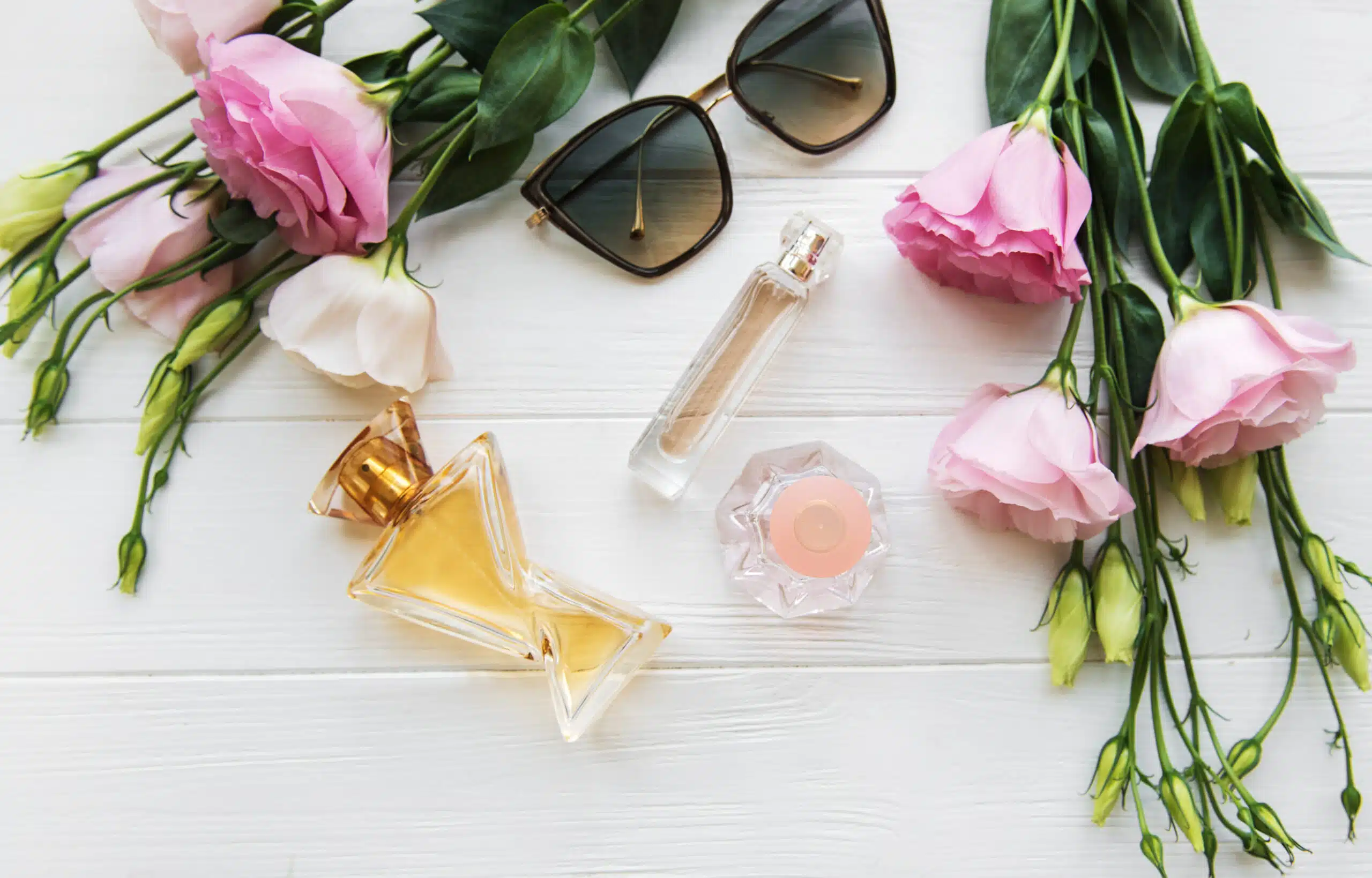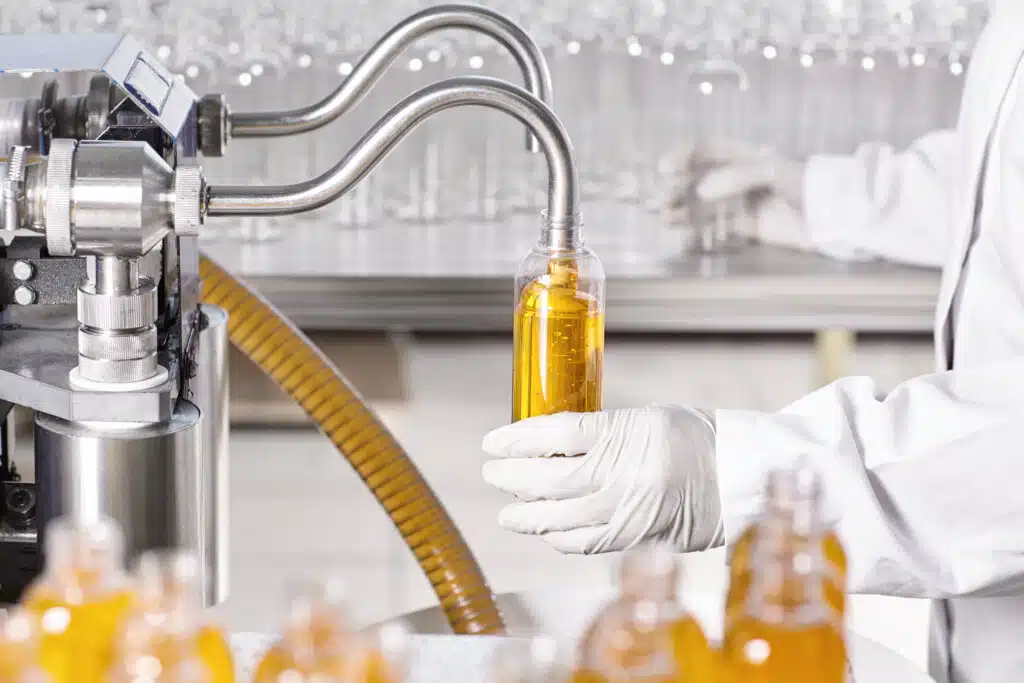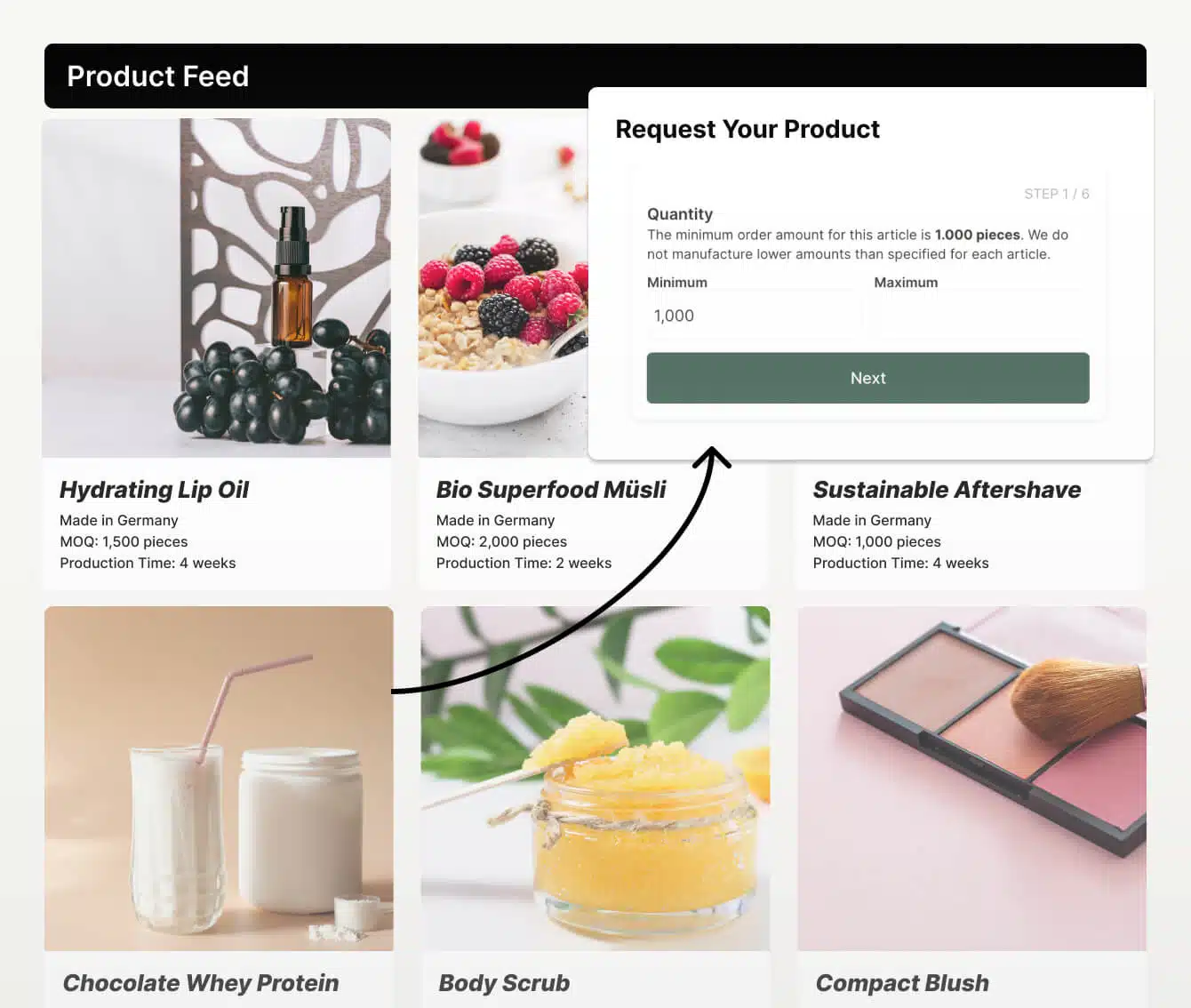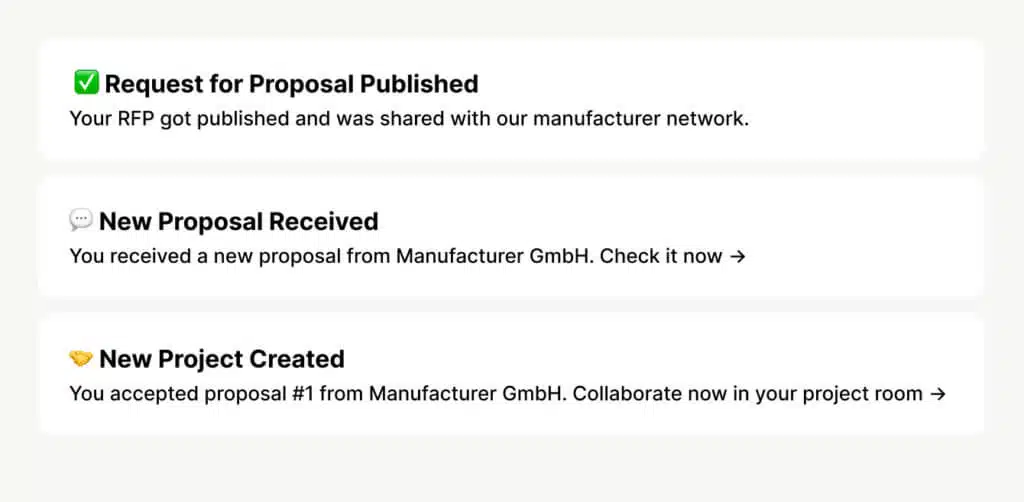Connect with top European private label perfume manufacturers and create your unique scent. White label and contract manufacturing options available.





Bringing a new perfume product line to market can be a complex process. But with Wonnda, you can simplify the search for a reputable manufacturer who meets your standards for quality, certifications, and affordability. Our platform offers a curated selection of European suppliers who have been pre-screened and approved.


Our manufacturers are experts in producing a range of fragrance products, including eau de parfum, eau de toilette, and more. Whether you’re looking to create a unique scent or bring a best-seller to market, our manufacturers have the knowledge and experience to bring your vision to life. Let Wonnda help you source, launch, and scale your next perfume product.
Get inspired and directly request products from our trusted partner manufacturers or create tenders and we match you with the right partner for your project.


No more communication errors. Our digital sourcing solution makes the launch of products more efficient.
Wonnda is a digital sourcing platform that allows brands to discover products and find the right supplier for your next bestseller. Instead of spending thousands of Euros on trade shows, or hours searching online for good suppliers, Wonnda works with verified suppliers and gives you access to them 365 days a year.
Thanks to a huge network of factories and sourcing experts, Wonnda is able to cover almost any consumer product category. Just create your free Wonnda account and find the best private label suppliers & contract manufacturers for your brand.
The sourcing process on Wonnda is designed to be seamless and efficient. Once you join our platform and create your brand profile, you can begin searching for manufacturers that align with your product requirements. Our advanced search filters allow you to narrow down your options based on location, production capacity, certifications, and more. You can review detailed manufacturer profiles, including information about their capabilities, product catalogs, certifications, and customer reviews. If you find a manufacturer that interests you, you can initiate contact through our secure messaging system to discuss your project further, request samples, and negotiate pricing and terms. Wonnda facilitates the entire communication process, making it easy for you to collaborate with manufacturers, evaluate their suitability, and make informed decisions. Our goal is to simplify the sourcing journey and ensure a successful partnership between brands and manufacturers.
Wonnda offers a comprehensive and efficient solution for brands seeking European manufacturers for their product line. By choosing Wonnda, you gain access to a vast network of verified and reliable private label manufacturers/suppliers. We carefully curate our database to ensure that only high-quality manufacturers who meet European standards are included. Our platform streamlines the sourcing process, saving you time and effort by providing a one-stop digital solution.
Use your business email address. The email will be used to create a free account. No credit card required. By signing up, you are accepting our terms & conditions & privacy policy.
© 2024 Wonnda GmbH. All rights reserved.
Use your business email address. The email will be used to create a free account. No credit card required. By signing up, you are accepting our terms & conditions & privacy policy.